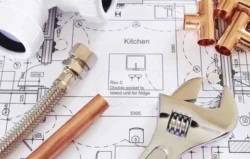If you are fairly competent with the particular type of project that you want done in your home, then you should be able to fare just fine. You will just want to be aware of some of the typical DIY pitfalls that can actually end up costing more in the long run.
With that in mind, here are three ways in which anyone hoping to tackle a certain home improvement project on their own can save more money on the project and avoid spending more than is necessary.
1. Watch Out for the Cost of Materials
One of the things that a professional contractor will be better at than your average DIY-er is finding the right price for the materials necessary for a certain project. Because contractors literally make their living on such things, they will know what a good price for flooring would be, for instance.
This doesn’t mean that you won’t be able to find the best deals on materials yourself. It just means that you will have to take your time and do your research so that you can find the right price for the items you will need. Take advantage of things like Home Depot coupons, and be sure to shop around so that you don’t eat up your budget too early on in the process.
2. Know Your Personal DIY Limits
There is nothing wrong with being confident in your DIY skills and ambitious about the things you will be able to handle throughout your project. However, it is crucial that you bear in mind the fact that it will cost you far more money in the end if you have to go back and correct work that you thought was done right the first time.
The key to avoiding overspending on your DIY project is to know what you are capable of. If you are good at laying tile, for example, but not so great with plumbing, it is far cheaper, in the long run, to hire a professional plumber to take care of those things that you aren’t well versed in as a DIY-er.
3. Know Your Numbers
Prior to making any purchases or starting any work on your home improvement project, you need to know precisely how much you are going to be able to spend on the project. Without a firm budget to work from, you will find yourself overspending in some areas, leaving you with little to work with in other areas. Know your budget so that you can complete your project without any financial surprises.







